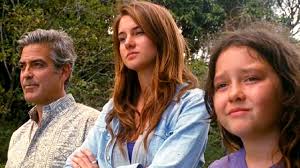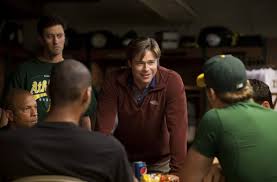And so we come to the much-delayed finale of Oscarpalooza 2011. By now, most of you have moved on from the Oscars, but not me. Obsession is a blessing and a curse, after all. But, here on The Entertainment Junkie at least, we'll put this year's show to rest here with thoughts on the Best Picture category. Yes, The Artist won, but was it the right choice (according to my humble opinion)?
BEST PICTURE









BEST PICTURE
The Artist
So for only the second time in the show's 84 years, a silent film won Best Picture. And the outrage afterwards was explosive - its too slight, its too gimmicky, it doesn't represent the film industry and the world in 2011, no one will remember it in five years, its overrated. It is slight. And the only thing it says about 2011 is that we're so creatively bankrupt that we returned to the silent era for inspiration. But you know what? The Artist has one goal - entertainment. And it entertains in droves, easily charming the pants off audiences with its simplicity. Sure, the movie drags in some areas (100 minutes is too long for this story), but watching Jean Dujardin and Berenice Bejo's terrific onscreen chemistry is worth it. Director Michel Hazanavicius also plays around with format and genre in a way that makes the film even more interesting. It's not my top pick for the prize, but it's certainly a worthy choice.
The Descendants
Alexander Payne's made a career out of documenting the crises of American adulthood, and there's plenty to go around in The Descendants. Matt King (George Clooney) has found out that his wife - who's in a coma after a boating accident - has been having an affair, he has to take care of two daughters he's never related to, and he has to make a decision on the sale of his family's Hawaiian real estate. This is a lot of plot for the film, and though Payne handles it with typical deftness, the film still gets bogged down in its melodrama. Clooney has received most of the praise for his excellent performance, but its Shailene Woodley and Judy Greer who steal the film with their terrific work as his oldest daughter and the wife of King's potential buyer, respectively. Its not perfect, but its a fine ensemble film.
Extremely Loud & Incredibly Close
The surprising ninth nominee in this year's field, this film drew a lot of flack from critics for being cloying, manipulative, and overly-saccharine. But I liked it. I mean that with true sincerity. Where, say, Spike Lee's 25th Hour captured a New York City that was still angry, still damaged, and still lost after the 9/11 attacks, EL & IC captures the city in healing, no less lost or hurt but coming to terms with the tragedy and coming together to rise up. I'll admit, I'm a sucker for these kinds of stories, and director Stephen Daldry does a fantastic job at integrating the elements for powerful emotional reactions. Thomas Horn as young Oskar can be incredibly grating, but to a degree that's how the character is supposed to be, and, to me at least, this was the best performance of Sandra Bullock's career. And to the critics: what movie isn't manipulative? I wouldn't name it Best Picture, nor would I have necessarily nominated it (in fairness, I wouldn't have nominated most of these films), but its far from the aberration many made it out to be.
The Help
The Help, too, is a problematic film in many ways. It streamlines and simplifies a very complicated issue. It goes on for far too long. And it's ostensible protagonist, Emma Stone's Skeeter, is a complete bore, no matter how many scenes with her even-more-boring romantic interest she gets. But at the same time, The Help does a great many things right. It makes the maids - Viola Davis' Aibileen and Octavia Spencer's Minnie - the real protagonists, and makes them real, layered, complicated characters. It ties together its disparate storylines neatly (perhaps too neatly), but especially thematically in a way that brings up interesting questions. And it is a veritable boon of great performances from great actresses - this and Bridesmaids should be used to make the case that there's nothing wrong with great films featuring a cast of great actresses. It's the ensemble - especially Davis - who lifts this film to the greatness it reaches. And that's certainly something worth celebrating.
Hugo
There was so much potential here: Martin Scorsese, making a children's film about a young boy who lives in a Parisian train station who's trying to solve the secret his father left behind for him that doubles as a history lesson on the birth of cinema, all based on the graphic novel The Invention of Hugo Cabret by Brian Selznick. That sounds difficult, but if anyone could do it, its Scorsese, right? Look, the film is gorgeous to look at (it earned those five technical Oscars it won), and its intentions - teach kids about early cinema and serve as a PSA for film preservation - are noble. But its such a shame to see Scorsese - one of cinema's greatest storytellers - too often abandon the film's intriguing story to riff and recreate Melies' short films. It also doesn't help that, outside of Ben Kingsley and Helen McCrory as the Melies, the performances are not very interesting. The rest of the film community went nuts for this film. I just couldn't share the enthusiasm.
Midnight in Paris
Perhaps Marty could have taken a lesson from Woody. Midnight in Paris took flack as well for being "too slight," and like The Artist, it relies a lot on the charms of the Roaring '20s. Yet this is perhaps one of the most insightful films Woody Allen has made in years, as he relays the message through time-hopping writer Gil (Owen Wilson) that every generation fantasizes the previous as being the "golden age," and that nostalgia may keep us warm at night but it won't help us move forward. The film is a fantasy, certainly, but its also Woody's best since [insert your last favorite Woody film here; for me personally its Everyone Says I Love You], and brings out great performances from Wilson, Marion Cotillard, Allison Pill, Corey Stoll, Kathy Bates, and a particularly memorable cameo from Adrien Brody. Its great to see a master working in fine form again.
Moneyball
Its rare for a sports film to show so much soul without being about the players, or even really the coaches. Billy Beane (Brad Pitt) is the manager of the Oakland A's, a team that's just lost its trifecta of stars to other teams and doesn't have enough money to bring in more. Beane, a former next-big-thing who's playing career crashed early, proposes using a controversial system known as sabermetrics to build a championship team out of affordable players. Pitt shines as Beane, a perinneal underdog who's always fighting a system that's rigged against him, and the film takes on the melancholy that his life entails. Jonah Hill, in a rare non-comedic role, shows a completely different side of his talent as the math whiz who sells Beane on sabermetrics. The film absolutely glows with humanism and optimism, even as history wouldn't be kind to Beane (the 2003 A's - which the film follows - wouldn't win the World Series, but the Boston Red Sox would the next year using Beane's system). As the film's closing song intones, it's best to just enjoy the show.
The Tree of Life
I'm going to look like a total snob for loving this film, but this is a truly magnificent piece of art. Director Terrence Malick's near-masterpiece takes the story of one West Texas family in the 1950s and places it in the context of the history of the entire universe, as Malick - cinema's finest working philosopher/filmmaker - expounds on the concepts of Nature and Grace and the duality in which they exist in our physical world. Yes, the film is non-linear, featuring long segments of shots of the universe (genius cinematographer Emmanuel Lubezki was robbed of the Oscar) set to classical music, but come at it with an open mind and...well, its possible you still won't get it. It took me three times to really process it. But there's no denying that there was no other cinematic experience like it this year, and that's what this is: its a film, its a philosophical treatise, and most importantly, its an experience.
War Horse
On paper, War Horse looks like it was built to win Oscars: an adaptation of Michael Morpergo's 1982 novel, its a Steven Spielberg war epic modeled on the epics of John Ford. Perhaps, then, it stings that the film didn't win any. Its a fine film, with plenty of memorable human characters (particularly Tom Hiddleston's commander and Niels Arstrup's French grandfather) and several great scenes that highlight both the atrocity and humanity that can be found during war. However, the film hits its sentimental notes hard, and unfortunately horses aren't terribly expressive or compelling protagonists. Its a fine film, but it wins the award for "we're trying way too hard to win some hardware."
My personal ballot:
1. The Tree of Life
2. Moneyball
3. The Artist
4. Midnight in Paris
5. The Help
6. The Descendants
7. Extremely Loud & Incredibly Close
8. War Horse
9. Hugo
Comments